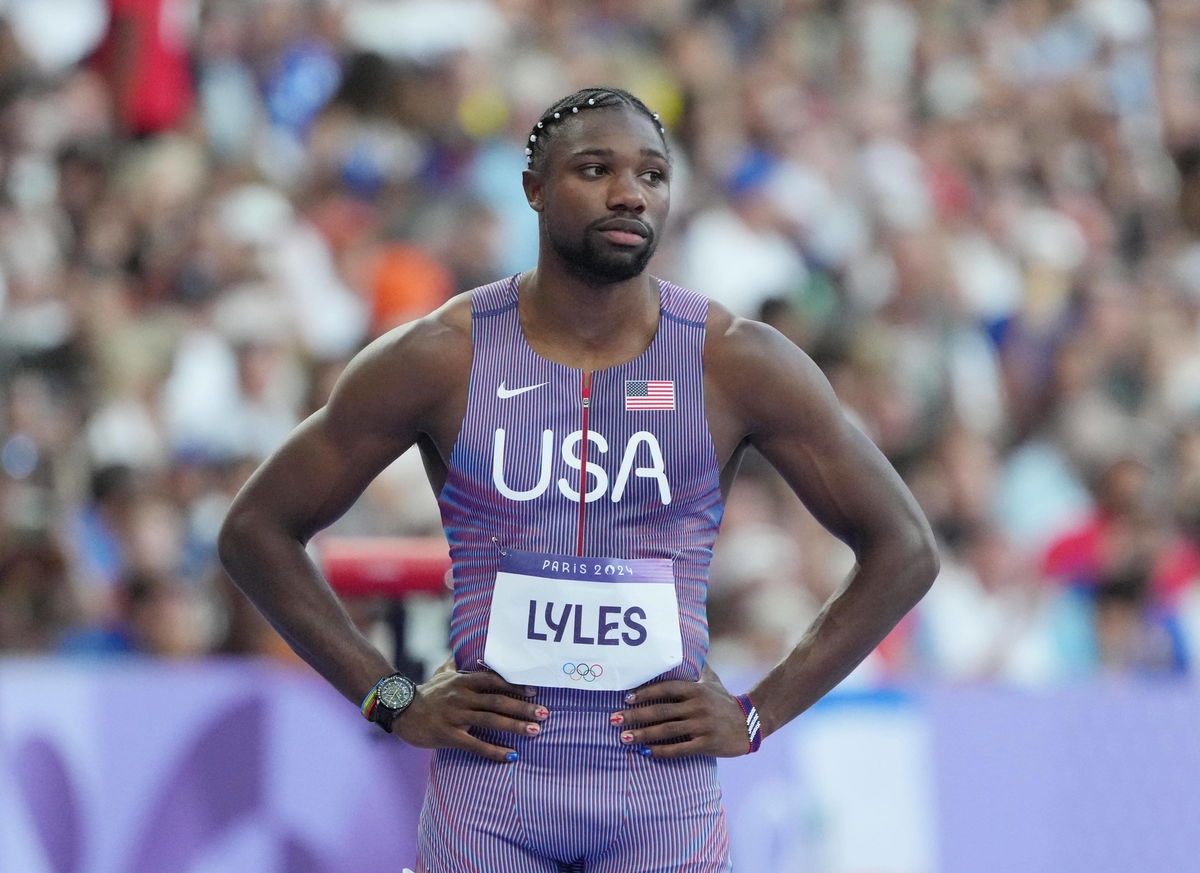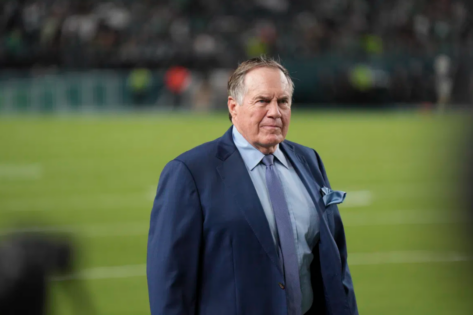As the sun dipped behind the Eiffel Tower and the U.S. Olympic team cruised down the Seine River on a grand boat, cameras focused on a familiar face at the bow. Noah Lyles, draped in red, white, and blue, looked into the lens with the swagger only he could carry. “What’s up, Team USA? This is Noah Lyles, fastest man in the world, and we are out here in Paris getting ready to go on our tour of the world, introducing America to the Olympics,” he proclaimed. It was bold. It was pure Noah. But it was also the spark that ignited a months-long debate.
Three days later, Lyles sat before a room of reporters at an Olympic news conference. The buzz hadn’t died down—it had grown louder. He leaned back in his chair, grinned, and with his trademark confidence said, “It’s me. It’s always going to be me.” And for a moment, no one could argue. Days later, Lyles delivered on his word. Under the glaring lights of Stade de France, he surged ahead of Jamaica’s Kishane Thompson in a thrilling 100m final to become the Olympic champion. The moment was electric. He had claimed the sport’s ultimate crown—Olympic gold—and with it, what many believed was the title of the fastest man alive. But time has a way of shifting narratives.
Fast forward to May 20, 2025. The glow of Olympic glory has begun to dim, replaced by new headlines and fresh performances. On a YouTube podcast hosted by Coach Rob, track experts Anderson Emerole and Anson Henry gathered to discuss a once-clear, now-muddied question: Who is truly the fastest man in the world? Anderson was the first to unpack the controversy. “Last year, Noah Lyles won the gold medal at the Olympics. Kishane Thompson had the world lead in the 100 meters. Akani Simbine, on average, did the best throughout the season,” he explained. “We’re looking at almost like three different things that were achieved throughout 2024, at least. And that’s something that should be distinctly awarded in some way, right? [It] should be recognized in some way.” His point was simple but powerful. The sport had become too one-dimensional in its praise. There was no award for consistency, no honor for the world leader. Just one title and one race to define it.
It was a critique aimed directly at the sport’s structure, but also at Lyles himself. So far in 2025, he’s been mostly silent in the 100m, choosing to focus on training while others made statements on the track. Enter Akani Simbine: The “Sub-10 King”.
While Lyles kept quiet, one man roared louder with each meet: South Africa’s Akani Simbine. In April, under the bright skies of Botswana, Simbine sprinted to a 9.90-second victory—clean, powerful, and historic. It marked the 11th straight season in which he had run under 10 seconds in the 100m, breaking Usain Bolt’s previous record of ten. That performance didn’t just win him a race. It earned him a nickname: The Sub-10 King. So far in 2025, Simbine remains undefeated in the 100m. He hasn’t needed to talk. The times speak for him. And in this new chapter of sprinting, consistency might be just as powerful as gold.
The report is developing…
The post American Track & Field Coach Questions Noah Lyles’ ‘World’s Fastest Man’ Title After Rising Stars Put Him on Notice appeared first on EssentiallySports.



